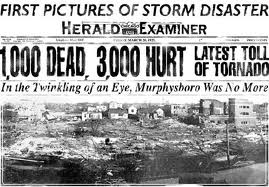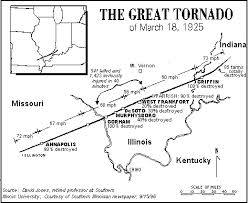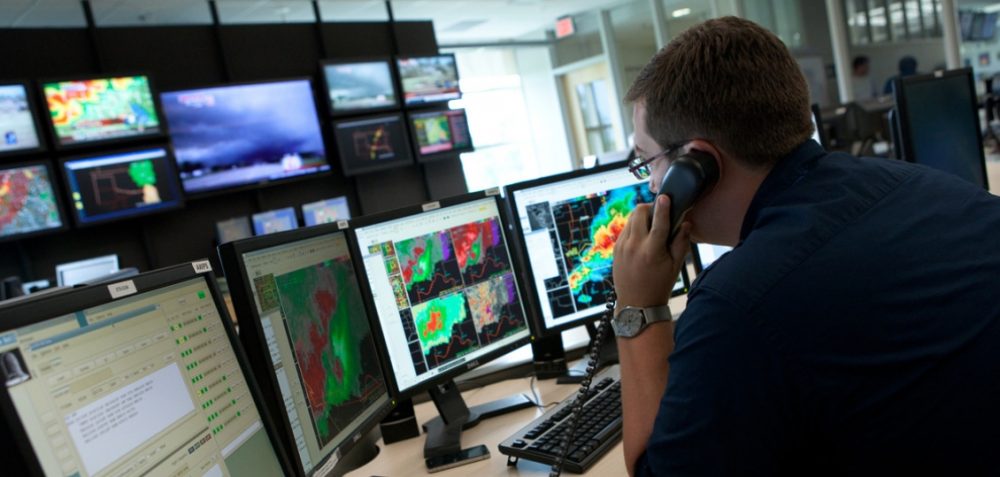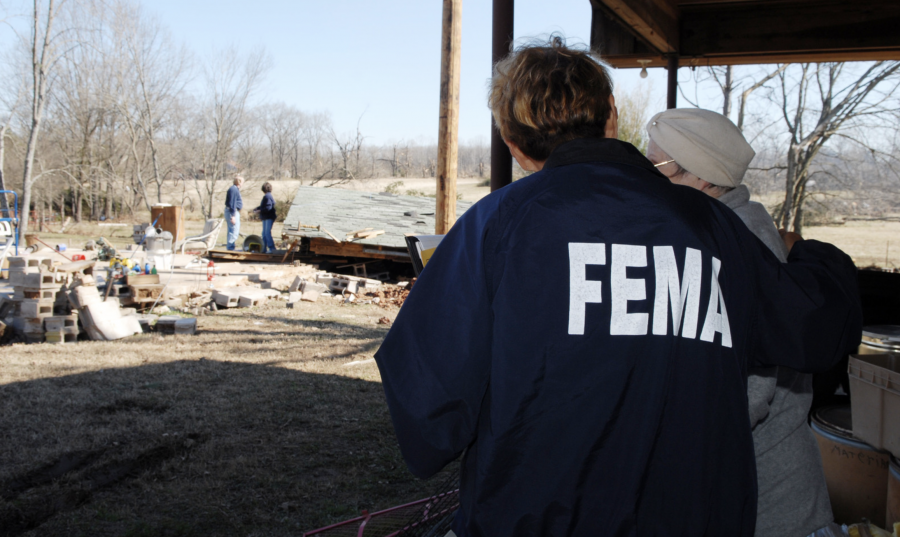Lessons From The World’s Record-Breaking Tornado
My kids are at that age where they ask questions like: “What is the hottest place you can live on earth?”, and “What is the coldest place you can live on earth?” So I was intrigued when I was doing my morning disaster reading that I came upon a page in FEMA Daily Operations Briefing that gave a […]

 My kids are at that age where they ask questions like: “What is the hottest place you can live on earth?”, and “What is the coldest place you can live on earth?”
My kids are at that age where they ask questions like: “What is the hottest place you can live on earth?”, and “What is the coldest place you can live on earth?”
So I was intrigued when I was doing my morning disaster reading that I came upon a page in FEMA Daily Operations Briefing that gave a nod to the world’s record breaking tornado.
 According to FEMA, the Tri-State Tornado of March 18, 1925 holds the record for:
According to FEMA, the Tri-State Tornado of March 18, 1925 holds the record for:
- Longest continuous track on the ground (219 miles)
- Longest duration (3.5 hours)
- Third fastest forward speed (average of 62 mph)
- Greatest number of tornado fatalities in a single U.S. city (234 in Murphysboro, IL)
- Tornado reached EF-5 status, with winds over 300 mph
- Total of 695 fatalities and over 2,000 injured
- 15,000 homes destroyed in MO, IL and IN
- Property damage totaled $16.5 million (2/3 of damage was in Murphysboro)
 The FEMA Daily Briefing made two important conclusions – first, “technology didn’t exist to help Weather Service forecasters to predict, identify and track severe weather – there were no satellites and phones weren’t prevalent.” Second, there was no NOAA Weather Radio… there were no organized warning systems in place.”
The FEMA Daily Briefing made two important conclusions – first, “technology didn’t exist to help Weather Service forecasters to predict, identify and track severe weather – there were no satellites and phones weren’t prevalent.” Second, there was no NOAA Weather Radio… there were no organized warning systems in place.”
 Early warning systems have been incredibly important in mitigating all forms of loss – tornado warning systems, tsunami warning systems, hurricane tracking systems – have saved lives and minimized damage. I’m impressed with how FEMA demonstrated the advancement of early warning systems by simply highlighting this catastrophe. Early warnings clearly saved lives last March in Moore, OK and as hurricane tracking systems have improved, individuals and communities have been able to evacuate more efficiently and effectively.
Early warning systems have been incredibly important in mitigating all forms of loss – tornado warning systems, tsunami warning systems, hurricane tracking systems – have saved lives and minimized damage. I’m impressed with how FEMA demonstrated the advancement of early warning systems by simply highlighting this catastrophe. Early warnings clearly saved lives last March in Moore, OK and as hurricane tracking systems have improved, individuals and communities have been able to evacuate more efficiently and effectively.
As my family and I are often called to our basement here in Tennessee because of tornado sirens, I’ll plan on using the story of the Tri-State Tornado as a tool to remind us all why we listen to the early warning systems that we are so thankful to have.
More like this

What the Government Shutdown Really Means to Disasters

